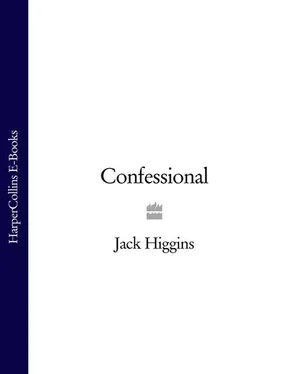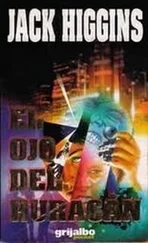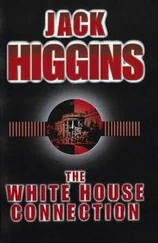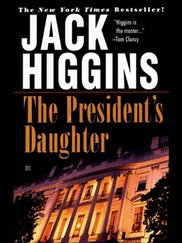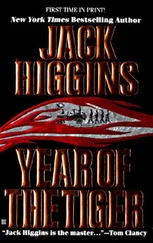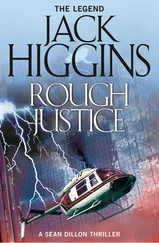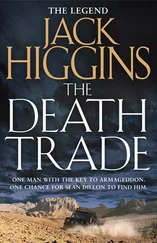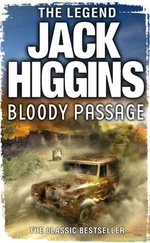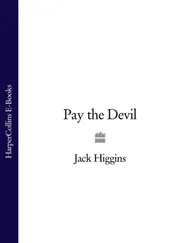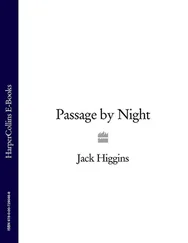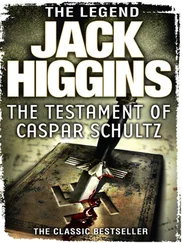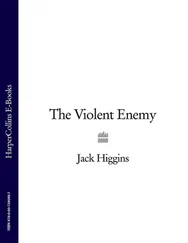JACK HIGGINS
CONFESSIONAL

FOR MY CHILDREN
Sarah, Ruth, Seán and Hannah
Cover
Title Page JACK HIGGINS CONFESSIONAL
PROLOGUE
1982
1
2
3
4
5
6
7
8
9
10
11
12
13
14
15
EPILOGUE
About the Author
ALSO BY JACK HIGGINS
Publisher Note
Copyright
About the Publisher
When the Land Rover turned the corner at the end of the street, Kelly was passing the church of the Holy Name. He moved into the porch quickly, opened the heavy door and stepped inside, keeping it partially open so that he could see what was happening.
The Land Rover had been stripped down to the bare essentials so that the driver and the two policemen who crouched in the rear were completely exposed. They wore the distinctive dark green uniforms of the Royal Ulster Constabulary, Sterling submachine guns held ready for instant action. They disappeared down the narrow street towards the centre of Drumore and he stayed there for a moment, in the safety of the half-darkness, conscious of the familiar odour.
‘Incense, candles and the holy water,’ he said softly and his finger reached to dip in the granite bowl beside the door.
‘Is there anything I can do for you, my son?’
The voice was little more than a whisper and, as Kelly turned, a priest moved out of the darkness, an old man, in shabby cassock, his hair very white, gleaming in the candlelight. He carried an umbrella in one hand.
‘Just sheltering from the rain is all, Father,’ Kelly told him.
He stood there, shoulders hunched easily, hands thrust deep in the pockets of the old tan raincoat. He was small, five feet five at the most, not much more than a boy, and yet the white devil’s face on him beneath the brim of the old felt hat, the dark brooding eyes that seemed to stare through and beyond, hinted at something more.
All this the old priest saw and understood. He smiled gently, ‘You don’t live in Drumore, I think?’
‘No, Father, just passing through. I arranged to meet a friend of mine here at a pub called Murphy’s.’
His voice lacked the distinctive hard accent of the Ulsterman. The priest said, ‘You’re from the Republic?’
‘Dublin, Father. Would you know this Murphy’s place? It’s important. My friend’s promised me a lift into Belfast. I’ve the chance of work there.’
The priest nodded. ‘I’ll show you. It’s on my way.’
Kelly opened the door, the old man went outside. It was raining heavily now and he put up his umbrella. Kelly fell in beside him and they walked along the pavement. There was the sound of a brass band playing an old hymn, Abide with Me , and voices lifted, melancholy in the rain. The old priest and Kelly paused, looking down on to the town square. There was a granite war memorial, wreaths placed at its foot. A small crowd was ranged around it, the band on one side. A Church of Ireland minister was conducting the service. Four old men held flags proudly in the rain, although the Union Jack was the only one with which Kelly was familiar.
‘What is this?’ he demanded.
‘Armistice Day to commemorate the dead of two World Wars. That’s the local branch of the British Legion down there. Our Protestant friends like to hang on tight to what they call their heritage.’
‘Is that so?’ Kelly said.
They carried on down the street. On the corner, a small girl stood, no more than seven or eight. She wore an old beret, a couple of sizes too large, as was her coat. There were holes in her socks and her shoes were in poor condition. Her face was pale, skin stretched tightly over prominent cheekbones, yet the brown eyes were alert, intelligent and she managed a smile in spite of the fact that her hands, holding the cardboard tray in front of her, were blue with cold.
‘Hello, Father,’ she said. ‘Will you buy a poppy?’
‘My poor child, you should be indoors on a day like this.’ He found a coin in his pocket and slipped it into her collecting tin, helping himself to a scarlet poppy. ‘To the memory of our glorious dead,’ he told Kelly.
‘Is that a fact?’ Kelly turned to find the little girl holding a poppy timidly out to him. ‘Buy a poppy, sir.’
‘And why not?’
She pinned the poppy to his raincoat. Kelly gazed down into the strained little face for a moment, eyes dark, then swore softly under his breath. He took a leather wallet from his inside pocket, opened it, extracted two pound notes. She gazed at them, astonished, and he rolled them up and poked them into her collecting tin. Then he gently took the tray of poppies from her hands.
‘Go home,’ he said softly. ‘Stay warm. You’ll find the world cold enough soon enough, little one.’
There was puzzlement in her eyes. She didn’t understand and, turning, ran away.
The old priest said, ‘I was on the Somme myself, but that lot over here,’ he nodded to the crowd at the Cenotaph, ‘would rather forget about that.’ He shook his head as they carried on along the pavement. ‘So many dead. I never had the time to ask whether a man was Catholic or Protestant.’
He paused and glanced across the road. A faded sign said Murphy’s Select Bar . ‘Here we are, then. What are you going to do with those?’
Kelly glanced down at the tray of poppies. ‘God knows.’
‘I usually find that He does.’ The old man took a silver case from his pocket and selected a cigarette without offering one to Kelly. He puffed out smoke, coughing, ‘When I was a young priest I visited an old Catholic church in Norfolk at Studley Constable. There was a remarkable medieval fresco there by some unknown genius or other. Death in a black hood and cloak, come to claim his harvest. I saw him again today in my own church. The only difference was that he was wearing a felt hat and an old raincoat.’ He shivered suddenly.
‘Go home, Father,’ Kelly said, gently. ‘Too cold for you out here.’
‘Yes,’ the old man said. ‘Far too cold.’
He hurried away as the band struck up another hymn and Kelly turned, went up the steps of the pub and pushed open the door. He found himself in a long, narrow room, a coal fire burning at one end. There were several cast-iron tables and chairs, a bench along the wall. The bar itself was dark mahogany and marble-topped, a brass rail at foot level. There was the usual array of bottles ranged against a large mirror, gold leaf flaking to reveal cheap plaster. There were no customers, only the barman leaning against the beer pumps, a heavily built man, almost bald, his face seamed with fat, his collarless shirt soiled at the neck.
He glanced up at Kelly and took in the tray of poppies. ‘I’ve got one.’
‘Haven’t we all?’ Kelly put the tray on the table and leant on the bar. ‘Where is everyone?’
‘In the square at the ceremony. This is a Prod town, son.’
‘How do you know I’m not one?’
‘And me a publican for twenty-five years? Come off it. What’s your fancy?’
‘Bushmills.’
The fat man nodded approvingly and reached for a bottle. ‘A man of taste.’
‘Are you Murphy?’
‘So they tell me.’ He lit a cigarette. ‘You’re not from these parts.’
‘No, I was supposed to meet a friend here. Perhaps you know him?’
‘What’s his name?’
‘Cuchulain.’
The smile wiped clean from Murphy’s face. ‘Cuchulain,’ he whispered.
Читать дальше
